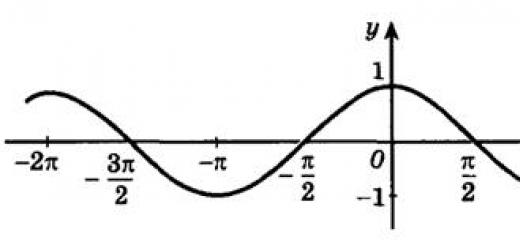Asphalt concrete and its mixtures are the main raw materials for laying highways, coatings near airports, shopping centers, residential buildings, etc. The quality of these materials must necessarily comply with the regulatory requirements of GOST. Determining the characteristics of raw materials is possible only in laboratory conditions. Both the components of the asphalt concrete itself and samples of ready-made coatings (cores) are analyzed.
Examination of asphalt concrete: for whom is the actual service?

All parties involved in road construction are interested in the expertise of asphalt concrete. At its expense, the direct executors of the work have the opportunity to control the honesty of the suppliers of materials. Customers, controlling state bodies, receive evidence of the project being completed at the proper quality level and the effective use of the allocated money. Each of these parties may initiate laboratory testing of materials.
By clicking on the link http://ltsr.ru/ispytatelnaja-laboratorija/ispytanie-asfaltobetona/, you can see how the asphalt concrete examination is carried out within the laboratory. Samples for research are necessarily selected by its specialists, which completely eliminates the possibility of distortion, “rigging” of research results. The sampling procedure at the facilities is recorded in special acts. After that, the holes formed throughout the entire depth of the road surface are filled with cold asphalt.
What tasks does the laboratory examination of asphalt solve?

The main goal of all asphalt laboratory research is to improve the quality of existing and existing roads. It is possible to achieve it thanks to a whole range of practical tasks solved by expertise:
- selection of the optimal ratio of the components of the asphalt concrete mixture;
- assessment of the condition of the road surface and the prospects for its further use;
- identification of technological deviations during the commissioning of routes.
Determination of physical and chemical indicators of raw materials, operational parameters of coatings is carried out within the framework of the regulatory requirements of GOST. All the results obtained are reflected in the official expert opinions. If necessary, these documents can be used as evidence in litigation.
Stomach problems cause discomfort to a person, causing pain and discomfort, heaviness, nausea and other symptoms. One of the dangerous bacteria that can lead to inflammatory processes in the stomach and duodenum is Helicobacter pylori ( Helicobacter pylori).
Irregular nutrition, lack of a balanced diet, genetic predisposition and weakened immunity can become the basis for the active reproduction of the Helicobacter bacterium.
In order to detect a dangerous viral infection, research on Helicobacter pylori able to accurately determine the presence of antibodies in the human body. To date, there are two main types of analysis of this type:
- Fecal analysis. It is carried out in a special laboratory using the polymerase chain reaction (PCR) method and is suitable not only for adults, but also for pensioners and children. Gives results with 95% accuracy.
- Blood analysis. There are two methods for detecting the Helicobacter virus, each of which has its own characteristics. Enzyme-linked immunosorbent assay (ELISA) - the analysis is based on the ability of the Helicobacter pylori antigen to cause a response of the immune system in the human body; here venous blood acts as a material. The Western blot method is distinguished by obtaining differentiated information about the presence of antibodies in the body by separating the proteins of the bacterial extract using electrophoresis.
The relevance of research on Helicobacter
Modern research on Helicobacter conducted in the medical laboratory "MedLab" is an opportunity for each person to receive accurate detailed results of analyzes in the shortest possible time about the presence of the virus in the body. The procedure for passing the analysis is carried out at a convenient time for the patient and using modern techniques that give results with a high percentage of accuracy. The main indications for research are the following:
- Signs of a duodenal ulcer;
- Symptoms of duodenitis or gastritis;
- Monitoring the effectiveness of the treatment.
Statistics for Russia show that the infection rate of the population is from 70 to 80% of the population, although in most cases the Helicobacter bacterium is in a latent state and does not manifest itself in any way. At the first sign of problems with the gastrointestinal tract, it is desirable to conduct research on Helicobacter as early as possible.
An experience noun, m., use often
Morphology: (no) what? experience, what? experience, (see) what? an experience, how? experience, about what? about experience;
pl.
what? experiences, (no) what? experiments, what? experiences, (see) what? experiences, how? experiences, about what? about experiences
1.
An experience- this is the knowledge, skills and abilities that a person or any community of people has acquired in the process of life, practical activity in a particular area. Work experience. | Positive, negative experience. | Acquire and share experience. | To share experience. | Learn, use someone else's experience. | Experience exchange. | Rely on someone else's experience. | Learn from the experience of elders. | Convince yourself of something on your own experience. | Adolescents do not yet have the experience of independent living. | Behind the director's shoulders is a solid experience of work at his own enterprise.
2. experience you call the knowledge of life based on what you have lived and experienced.
Huge personal experience. | Living experience. | Experienced people. | Taught by bitter experience.
3. In philosophy experience called the totality of sensory perceptions that a person acquires in the process of interaction with the outside world and which constitute the source and basis of his knowledge about this world.
Experience is the source of all knowledge.
4. In science experience called the reproduction of a phenomenon or the observation of a new phenomenon under certain conditions with the aim of studying and researching them.
Conduct, put, do the experience. | An original, bold, interesting experience. | Good, bad experience. | Laboratory experiments. | Physical, chemical, livestock experiments. | What are the results of the experience? | Experiments on animals and humans. | The first successful experiments on correcting vision with a laser were carried out in the early 1980s.
Experiment
5. An experience- this is your attempt to do something, the trial implementation of something.
Literary, poetic experiments. | Early experiences of a young playwright. | Experiences of the painter in the field of book graphics.
experienced adj.
Explanatory dictionary of the Russian language Dmitriev. D.V. Dmitriev. 2003 .
Synonyms:
See what "experience" is in other dictionaries:
an experience- Experience and... Russian spelling dictionary
Based on the practice of the senses. empirical knowledge of reality; in a broad sense, the unity of skills and knowledge. In the history of philosophy, the views of empiricism and sensationalism have become widespread, according to which feelings. the data is... Philosophical Encyclopedia
The source of our wisdom is our experience. The source of our experience is our stupidity. Sacha Guitry Experience is the totality of our disappointments. Paul Auger Experience is lost illusions, not wisdom gained. Joseph Roux Teaching is the study of rules; learning experience... Consolidated encyclopedia of aphorisms
EXPERIENCE, experience, husband. 1. pl. rare.. The totality of practically learned knowledge, skills and abilities. “In order to lead correctly, it is necessary to supplement the experience of leaders with the experience of the party masses, the wholesale of the working class, the experience of the working people, the experience ... ... Explanatory Dictionary of Ushakov
Try, experiment. Attempt at writing. First debut. See the test .. taught by experience, wise by experience ... . Dictionary of Russian synonyms and expressions similar in meaning. under. ed. N. Abramova, M .: Russian dictionaries, 1999. experience, test, test, ... ... Synonym dictionary
An experience- Experience ♦ Expérience A way of comprehending reality; everything that comes to us from the outside (external experience) and even from within (internal experience), provided that as a result we learn something new. Opposes reason, but at the same time ... ... Philosophical Dictionary of Sponville
Empirical knowledge of reality; unity of knowledge and skills. Experience acts as a result of the interaction of man and the world and is transmitted from generation to generation ... Big Encyclopedic Dictionary
an experience- EXPERIENCE, EXPERIMENTAL experiment, trial, experimental ... Dictionary-thesaurus of synonyms of Russian speech
an experience- a way of knowing reality, based on its direct, sensual practical development. O. serves as an important source of information both about the external objective world and about the mental life of the subject. In psychology, the concept of O. ... ... Great Psychological Encyclopedia
EXPERIENCE, sensually empirical knowledge of reality; unity of knowledge and skills ... Modern Encyclopedia
L) a philosophical category that fixes the integrity and universality of human activity as a unity of knowledge, skill, feeling, will. Characterizes the mechanism of social, historical, cultural inheritance; 2) epistemological category ... History of Philosophy: Encyclopedia
Books
- Experience of my life. Book 2. Love in New York, I. D. `Experience of my life` - a true story of a man whose name is known to every inhabitant of Russia. This novel is about the fate of an ordinary girl, history, homeland and emigration, a fall and a fantastic ...
An audit is a tool for obtaining reliable information about the functioning of the labor protection management system in an organization. The main purpose of audits is to provide information to top management on the functioning of the OSH management system for their analysis of its effectiveness.
Audits are carried out in order to:
determine the compliance or non-compliance of the labor protection management system with the requirements of the standard;
determine the effectiveness of the management system to achieve the goals;
identify potential for further improvement of the OSH management system;
ensure compliance with legal requirements;
certification of the quality management system for its compliance with the requirements of the standard.
When conducting an audit, the functioning of the system is checked, and not the work of departments and individual employees.
Audit (from Latin) - listening. Therefore, the auditor is the listener, and the audience is the place where the hearing takes place. In terms of legal status, an auditor is a person who has the competence to conduct an audit.
Audits are divided into:
first party audits - conducted by the organization itself in its own interests;
second party audits - audits conducted by the organization for its own purposes in another organization (supplier, contractor). These include corporate audits;
third party audit - carried out by an independent organization (not interested in the results of the audit). Such audits, as a rule, are carried out for the purposes of certification, resolving the issue of awarding a prize, etc.
First party audit - internal audit.
Second and third party audit - external audit.
Vertical audit - an audit in which the unit is checked for all points of the standard, for all aspects of labor protection management.
Horizontal audit - an audit in which a certain item of the standard, an aspect of labor protection management is checked in all departments.
Combined audit - simultaneous audit of the quality management system, environmental management system, labor protection management system.
A joint audit is an audit conducted jointly by two or more organizations.
Compliance audit (implementation). As a result of its implementation, it is established to what extent the requirements of the labor protection management system, established procedures and criteria are met in practice (“describe what needs to be done, how to do it, and do it as it is written”).
Adequacy audit (desktop audit, documentation audit). As a result of its implementation, it is established to what extent the organization's labor protection management system meets the requirements of STB 18001-2009.
Unlike control, an audit does not involve interference in the activities of the audited entity. Auditors are not given the authority to do so.
It should also be noted that the results of the audit should not serve as a basis for holding employees accountable.
Sigmoidoscopy is an endoscopic type of examination with which you can examine the rectum, lower sigmoid. The examination is carried out using a device - a sigmoidoscope, which is inserted into the anus, especially when patients have blood in the stool.
Indications for examination
1. Isolation of blood from the anus;
2. Chronic constipation or diarrhea;
3. Frequent pain in the anus, discharge of pus and mucus;
4. If you suspect oncological diseases;
5. With chronic hemorrhoids.
Of course, there are no contraindications to sigmoidoscopy. But it must be taken into account that the procedure is difficult to tolerate: if patients have cardiovascular diseases, with anatomical narrowing of the anus and rectum, in the presence of inflammation in the anus.
Required preparation
The main condition for an effective examination is the cleansing of the colon. Three days before the procedure, it is necessary to exclude vegetables, fruits, dairy products from the diet, limit the consumption of bread. On the eve of the study, you can only take tea.
Preparation with the laxative drug Fortrans
1. We prepare the solution according to the instructions -1 packet of powder must be dissolved with 1 liter of warm water. Calculation of the drug: for 20 kg of the patient's weight - 1 package (but more than 4 packages cannot be taken);
2. Beginning of acceptance of Fortrans no later than 18-00;
3. Take the prepared solution gradually (not in one gulp). 1 glass - for 10 minutes, then the next;
4. Take the required dose in two doses, with an interval of 2 hours;
5. Finish the reception no later than 3 hours before the procedure;
6. The drug is contraindicated in children;
7. Do not use for the purpose of losing weight, because. possible dehydration.
How is RRS performed?
The examination is carried out on the couch, the patient is in the knee-elbow position. First, a digital examination is performed, and then the doctor inserts the tube of the proctoscope lubricated with vaseline to the required depth. A rectoscope is a metal tube 2 cm in diameter, 30 cm long. During the examination, the doctor examines the mucous membrane, can detect the presence of neoplasms, polyps, hemorrhoids, cracks. If necessary, he takes material for histological examination.
In addition, it is necessary to psychologically and morally tune in to the manipulation (unpleasant, but necessary). Of course, during sigmoidoscopy, there is a feeling of discomfort, but the procedure is painless and anesthesia is not used (only in extreme cases - with cracks and injuries of the anus).










